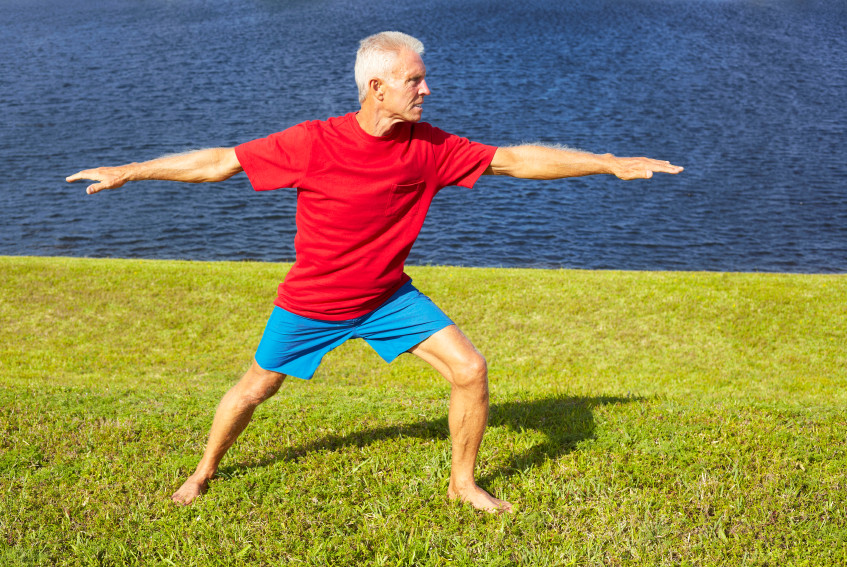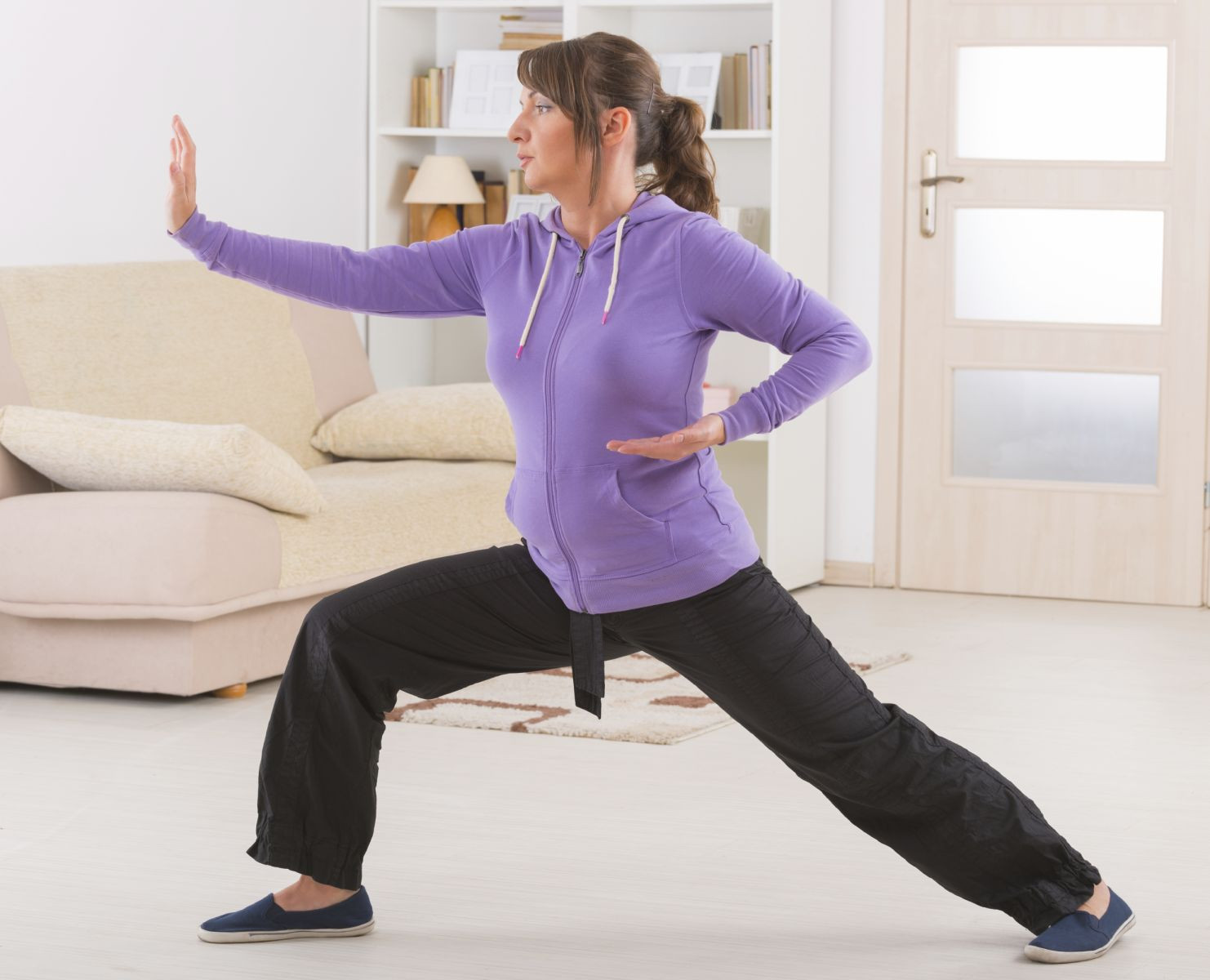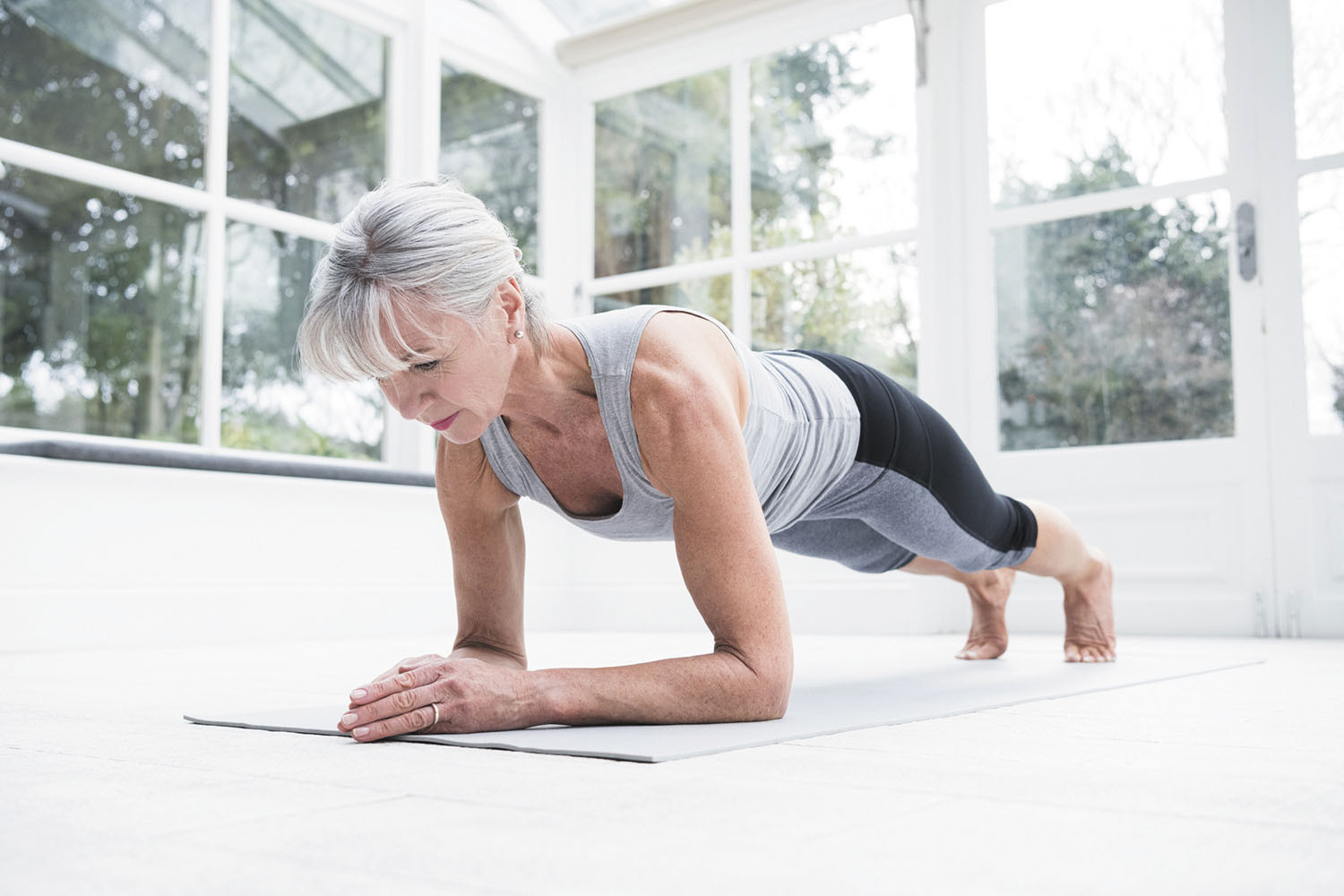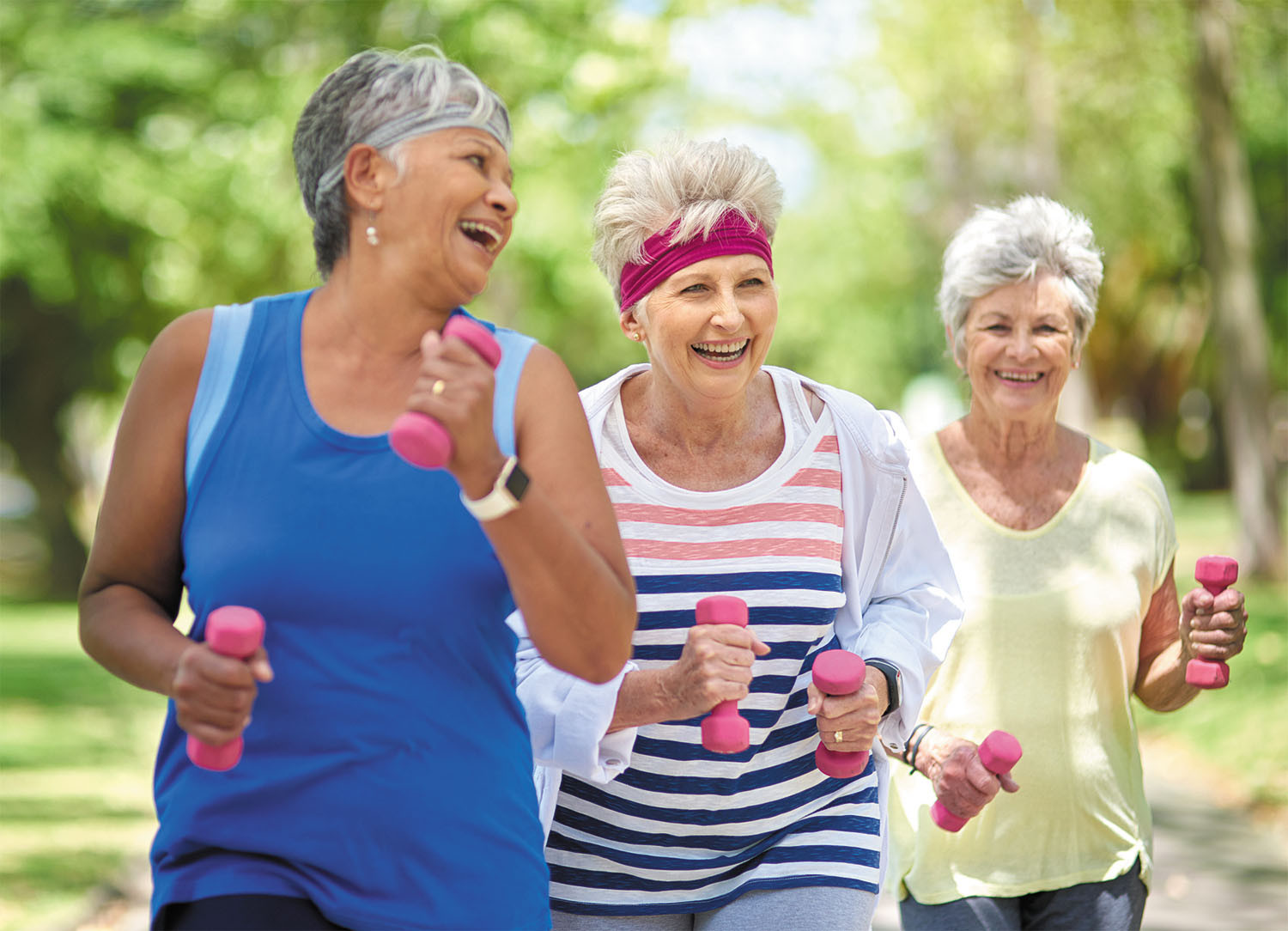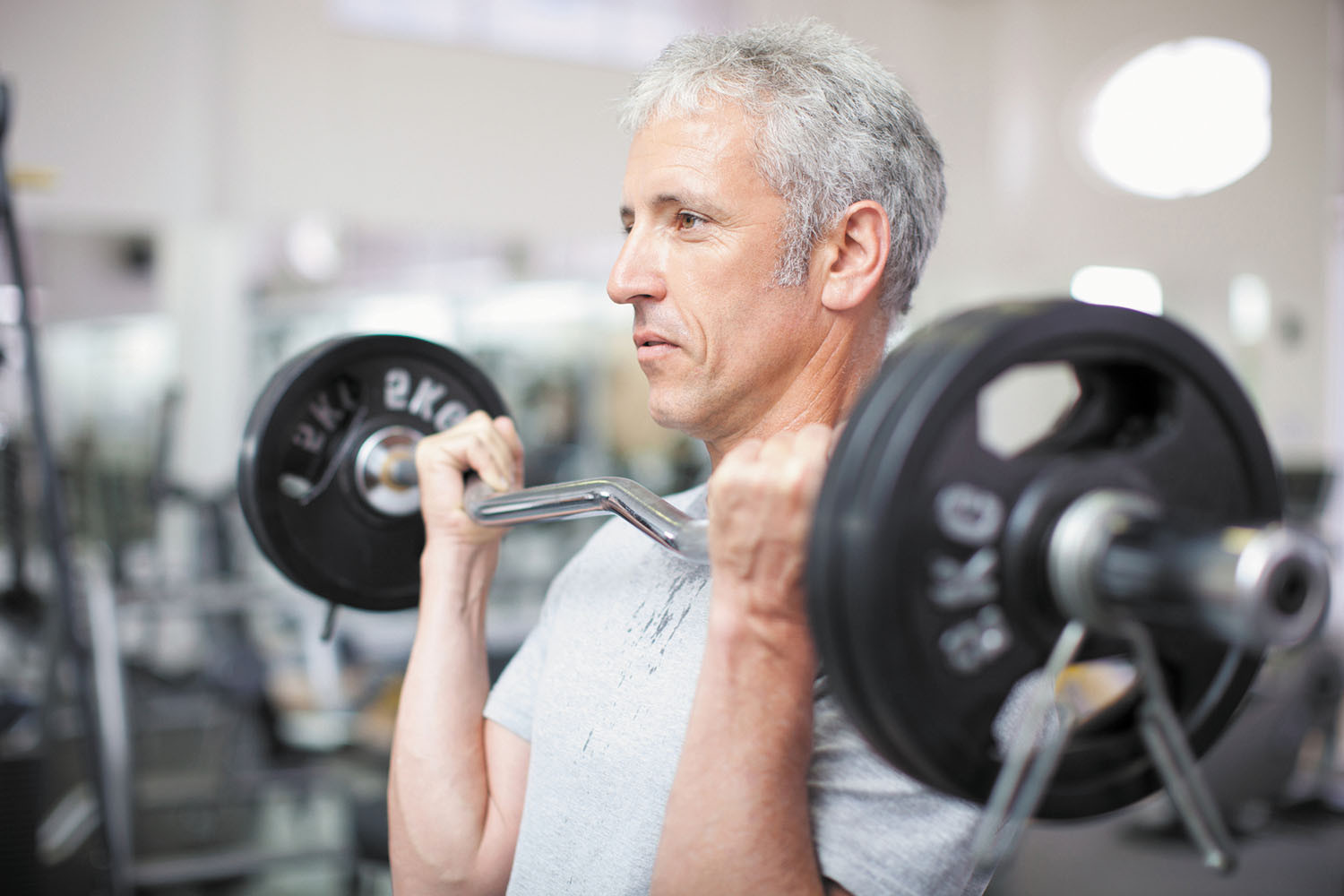
Counting steps is good — is combining steps and heart rate better?

Appendix pain: Could it be appendicitis?

Can saw palmetto treat an enlarged prostate?

How does Ozempic work? Understanding GLP-1s for diabetes, weight loss, and beyond

Zinc: What it does for the body, and the best food sources

Respiratory health harms often follow flooding: Taking these steps can help

Tips to leverage neuroplasticity to maintain cognitive fitness as you age

Can white noise really help you sleep better?

Celiac disease: Exploring four myths

What is prostatitis and how is it treated?
Exercise & Fitness Archive
Articles
Cardio step workout
Harvard fitness expert Michele Stanten takes you through a simple routine that will safely elevate your heart rate to keep your fitness goals on track.
Cardio dance routine
All you need are light clothing, a good pair of shoes and a few minutes of your day and Harvard exercise expert Michele Stanten will have you on your way to meeting your fitness goals.
Yoga lessens treatment-related symptoms in men with prostate cancer
Decades of research show that yoga can reduce the emotional and physical fatigue brought on by cancer treatment. In 2017, scientists reported for the first time that this is also true specifically for men undergoing treatment for prostate cancer. Men who took a yoga class twice a week during prostate cancer radiation treatment reported less fatigue, fewer sexual side effects, and better urinary functioning than men who did not.
The research team enrolled 50 men ages 53 to 85 who were diagnosed with early or advanced nonmetastatic prostate cancer. Of them, 22 were assigned to yoga classes and the rest did not participate in yoga. All the men received scheduled radiation treatments; 29 of them were also on hormonal therapy, and 19 had been treated previ-ously with surgery. The yoga and control groups were evenly balanced with respect to various cancer treatments as well as treatments for side effects.
Proper posture the tai chi way
If you're like most people, your posture could use some improvement. But how do you do that? The classic advice is to stand straight, with your head up, shoulders back, and belly in. While these are reasonable adjustments, tai chi takes a different approach that may be more effective. It aims to align the body in ways that afford safe, unstrained, and graceful postures—not the military-like, one-size-fits all, rigid stances many think of as good posture.
Instead, in tai chi, good posture centers around the principle of verticality. That means the head is centered over the torso, the torso rests over the hips, and the hips are centered over the legs and feet, your base of support. Here's how to do it.
Tips to help you embrace abdominal workouts
You can strengthen your abs without feeling like you're tackling a daunting workout.
Image: © Johnny Greig/Getty Images
For some people, crunches and other abdominal muscle workouts are the last thing they'd want to do — so they don't. "Part of the perception is that it's difficult. We tend to want to avoid doing things that require effort, especially as we get older, when that's harder for us," says Lorna Brown, a physical therapist who specializes in geriatrics at Harvard-affiliated Spaulding Rehabilitation Hospital.
But skipping abdominal strengtheners can have a big effect on your mobility and independence — and not for the better.
Stepping up treatments for PAD
Proven therapies for this painful leg problem should soon be more accessible.
Image: © stevecoleimages/Getty Images
When fatty deposits clog the arteries that supply blood to the legs, even a short walk can cause leg cramping and pain. This condition, called claudication, comes from the Latin word claudicatio, meaning "to limp." It's the hallmark of peripheral artery disease, or PAD, which affects roughly one in seven people over the age of 60.
People with PAD are also likely to have clogged arteries (atherosclerosis) in the heart. In fact, they may be even more prone to heart attacks and strokes than people with heart disease who have already had one of those problems.
Walking for fitness? Avoid traffic-clogged streets
Research we're watching
Image: © Cecilie_Arcurs/Getty Images
If you walk on busy city streets, breathing the traffic fumes may cancel out the health benefits of the exercise, a new study suggests.
The London-based study, published online Dec. 5, 2017, by The Lancet, included 119 volunteers over the age of 60 who were either healthy or had stable chronic obstructive pulmonary disease or stable heart disease. They all walked for two hours midday at two different locations. One was in a quiet section of Hyde Park, where air pollution is usually within healthy limits. The other was on a busy shopping area on Oxford Street, where levels of pollutants such as black carbon, nitrogen dioxide, and fine particulate matter regularly reach dangerous levels. The walks were separated by three to eight weeks.
Getting stronger despite frailty
Men may be less able to perform daily activities as they age, but there are ways to reverse these changes.
Most men would prefer to maintain strength and robustness as they age. There are many ways to maintain a high level of health and energy through the years, but disease, surgery, and Father Time sometimes gang up and make men feel as if their best years are behind them.
Still, you don't have to take frailty lying down. "It's never too late to treat frailty and recoup what you may have lost," says Dr. Marian T. Hannan, co-director of the Musculoskeletal Research Center at the Institute for Aging Research at Harvard-affiliated Hebrew SeniorLife.
Weight training helps maintain muscle mass in overweight adults
In the journals
Image: © Robert Daly/Getty Images
Cardio is often regarded as the exercise of choice for weight loss, but older adults can benefit from adding weight lifting too, as it helps preserve muscle mass more than aerobic workouts.
A study published online Oct. 30, 2017, by the journal Obesity divided 249 overweight or obese adults in their 60s into three groups. One followed a restrictive diet of 1,200 to 1,800 daily calories. Another followed the diet and also did weight-machine workouts (four 45-minute sessions per week, targeting the major muscle groups). The third group followed the diet plus a cardio program of walking (45 minutes, four days a week, at a moderate-intensity level).

Counting steps is good — is combining steps and heart rate better?

Appendix pain: Could it be appendicitis?

Can saw palmetto treat an enlarged prostate?

How does Ozempic work? Understanding GLP-1s for diabetes, weight loss, and beyond

Zinc: What it does for the body, and the best food sources

Respiratory health harms often follow flooding: Taking these steps can help

Tips to leverage neuroplasticity to maintain cognitive fitness as you age

Can white noise really help you sleep better?

Celiac disease: Exploring four myths

What is prostatitis and how is it treated?
Free Healthbeat Signup
Get the latest in health news delivered to your inbox!
Sign Up


